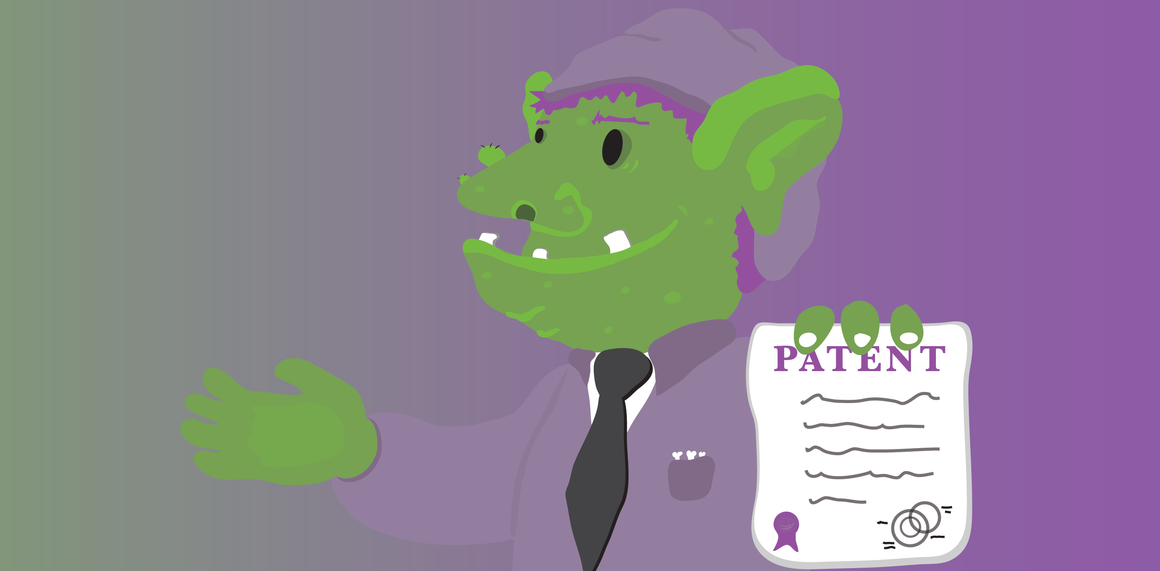“Patent Trolls” Scaring Companies that Use Technology as a Bridge to Better Business
https://perfectcommunications.com/wp-content/uploads/2014/05/l_patent_troll2-011-1024x504.png 1024 504 admin admin https://secure.gravatar.com/avatar/3f0ab219d4f408464f131b4180b1da5119b8392a5155a011682c7587c73fc755?s=96&d=mm&r=gI recently attended “Print’s Voice ’14,” the annual “Capitol Hill Fly-In” event co-sponsored by the Printing Industries of America. This annual visit to Washington, D.C., is held to give those connected to the graphic arts and printing industry the opportunity to meet directly with members of Congress and their aides. For two days I made my way back and forth between the House and Senate offices of the U.S. Capitol to discuss needed reforms to the U.S. Postal Service, tax policy, free trade and patent law. During the course of the briefings I attended, I became aware of an issue within current patent law that should be of interest not only to those connected with the graphics arts and communications industry, but to anyone who uses technology in the course of conducting their business.
This may seem like an overly broad warning. A close inspection of the details of this issue, however, makes its importance clear to everyone in the business community.
Patent law within the United States was established to protect the rights of those who create original works. Patent assertion entities (PAEs) are organizations that actively work to ensure intellectual property laws are enforced.1 These PAEs can conduct their business in the legitimate pursuit of fair play. Sometimes, though, they work solely for financial or business gain. An example of this is the strategy employed by Apple and Microsoft during the last several years.
Both Apple and Microsoft have spent billions of dollars purchasing the patent portfolios of other tech companies.2 This has given the two technology giants ammunition to use in their frequent court battles with other tech companies over smartphone technology. By owning the patents to technology they did not originally invent or create, Apple and Microsoft can be awarded royalties and license fees for its use, or they can force competitors to remove functions or features that use the technology from their products.
While original inventors and patent applicants can form PAEs to protect their invention, PAEs are more frequently being formed by investment groups looking to purchase intellectual property for the purpose of holding and enforcing a patent. Overly broad patents have given birth to these types of PAEs, which are also known by the moniker “patent trolls.” Patent trolls buy patents and then enforce them against companies who have inadvertently or perhaps unknowingly incorporated the patented technology into their business or product.
To illustrate how broad these patent assertions are, a group of printers in California recently received a patent infringement letter from a law firm that indicated they were violating a patent that supposedly covers “a system having a digital copier/scanner/multifunction joomla_4ice with an interface to office equipment (or to the Web) for scanning and transmitting images electronically to a destination such as email applications, or local files.” The law firm wanted $1,000 per employee for past infringement and future licensing. What company is not using the technology described by this infringement letter?
Another egregious example of patent trolls asserting their claims are lawsuits that have been filed against small coffee shops that provide Wi-Fi for public use. Yes, someone has claimed to have a patent on this. Pertaining specifically to the graphic arts industry, claims have been made against companies using the Internet to sell print and against those who use computer-to-plate technology.
While the broad assertions of owning these seemingly general and commonly used technologies is a significant and concerning issue for all businesses, the more immediate dilemma for companies that receive an enforcement letter is the way they are crafted. Companies that have received letters say there is often very little specific information regarding which patent has been violated. In addition, the letters offer a quick settlement of the issue, through a payment anywhere from $2,500 to $80,000. If the recipient agrees to the payment within a specific time frame the PAE agrees to not proceed with the lawsuit. The dilemma for these companies is that hiring an attorney to research and defend such broad accusations can easily exceed the potential settlement amount. This essentially amounts to legalized extortion under our current patent law.
It will be difficult to find a balance between allowing for the protection against valid patent infringement and discouraging the abuse of patent litigation. An encouraging sign, however, is that the Obama administration and both Republicans and Democrats in Congress agree that something needs to be done. There is consensus that patent trolls represent a real threat to our economy. This agreement between political bodies that rarely agree on anything provides hope that a solution can be found before the coming Congressional elections in November.
Additional Resources:
http://www.nytimes.com/2012/05/30/business/economy/tech-lawsuits-endanger-innovation.html
http://www.american.com/archive/2013/august/the-paradox-of-patent-assertion-entities


